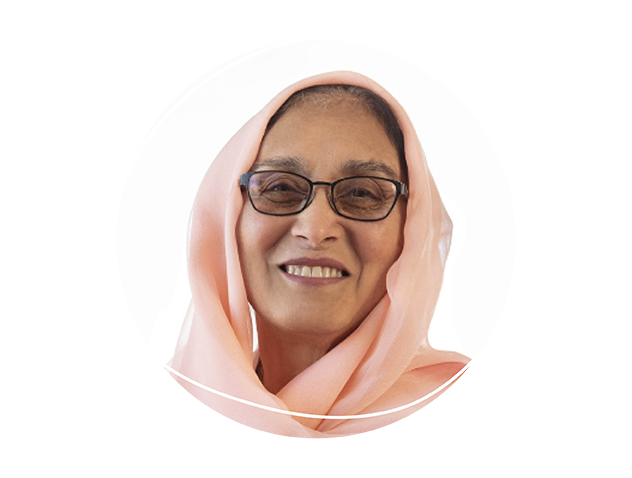
Faces of dementia: Rubina's story
Rubina lives with Alzheimer’s disease. She lives with her family in Milton, Ontario. Here, she shares some insights on her experiences.
"Before the diagnosis, I noticed a decline in my memory for over two years. I was forgetting items of my daily routine. I was concerned and fearful; my father and two paternal uncles had had Alzheimer’s disease.
I noticed a decline in my short-term memory, word-finding abilities, object use and simple calculations. I was forgetting what task I was doing. I was forgetting plans for the day. I had difficulty remembering recipes and what I ate two hours before. I could not recall names, events, and appointments. I was forgetting details of conversations and asking repetitive questions. I felt lost while driving.
I discussed this condition with my family physician. He referred me to the Toronto Memory Program. After the initial assessment, brain MRI and other diagnostic tests, the doctor confirmed that I had young onset Alzheimer’s disease. Initially, it was difficult to accept the diagnosis. I feared the next phases of the condition; I saw my father and uncle during their last stages of the disease. I was sad and in denial.
Slowly, I accepted the diagnosis and made a promise to myself to stay positive, do whatever possible to delay the progression of the disease, and help in the research program of finding a cure for Alzheimer’s disease. I am involved with social programs to help others and myself during this journey.
I have been participating in a drug clinical study program. It may or may not help me, but it will bring research closer to finding a cure for Alzheimer’s disease. I pray and hope that later Alzheimer’s patients can take medication to avoid, delay and cure the disease.
"Slowly, I accepted the diagnosis and made a promise to myself to stay positive, do whatever possible to delay the progression of the disease, and help in the research program of finding a cure for Alzheimer’s disease."
I am comfortable with cooking and doing housekeeping tasks. When I feel lost or frustrated, I get help from my husband. I ask him to guide me to complete the task but to not take over. I love sewing, walking, and spending time with family and friends. Occasionally, I do not know what to do, but I am still going on, and I figure it out.
Until my brain is not working, I am going to do whatever I can. It’s a disease, and I must figure things out and have to go on—not stop anything.
Don’t stop your life! If you stop, you’re not going to gain anything.”
Adapted and expanded with participation and permission, following Rubina’s video and story-sharing in the Hamilton Council on Aging’s Faces of Dementia project (2022).
Photo: Courtesy of Rubina Qureshi and family, and Faces of Dementia/ Hamilton Council on Aging.
